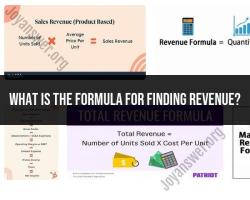What is the difference between a lump sum and annuity?
The main difference between a lump sum and an annuity lies in how they provide retirement income. Each option has distinct characteristics and considerations. Here's an overview of the differences between the two:
Lump Sum:
Payment Form: A lump sum is a one-time, upfront payment that you receive, typically when you retire or leave your job. It's a single large sum of money.
Investment Control: With a lump sum, you have full control over how the money is invested. You can decide how to allocate it across various investments, such as stocks, bonds, or other assets.
Flexibility: You have flexibility in managing your finances, including how much to withdraw and when. You can adjust your withdrawals based on your needs and market conditions.
Inheritance: Any remaining funds from a lump sum can be passed on to your heirs or beneficiaries after your passing.
Risk: The investment risk is on you. The performance of your investments can directly impact your retirement income, and there's a risk of losing money if investments do poorly.
Longevity Risk: You need to ensure that your lump sum lasts throughout your retirement, which can be challenging if you live longer than expected.
Annuity:
Payment Form: An annuity provides a regular stream of income, typically for life, in exchange for a lump sum premium or a series of payments. The income can be fixed (a set monthly amount) or variable (tied to investment performance).
Investment Control: With an annuity, you give up control over the lump sum in exchange for a predictable income stream. The insurance company manages the investments that back the annuity.
Guaranteed Income: Annuities offer a level of income security, as they can provide a steady income stream, which can help ensure you won't outlive your savings.
Simplicity: Annuities simplify retirement planning, as they require no investment decisions or ongoing management. You receive regular payments without actively managing investments.
Protection Against Overspending: Annuities can prevent you from depleting your savings too quickly by providing a set income.
Inheritance: Annuities may offer options for beneficiaries, but these may reduce the income you receive during your lifetime.
Risk: Annuities may have inflation risk, as fixed annuities may not adjust for inflation. Variable annuities carry investment risk.
The choice between a lump sum and an annuity depends on your financial goals, risk tolerance, and retirement needs. Some people prefer the flexibility and control of a lump sum, while others value the security and simplicity of an annuity. You can also explore a combination of both options to achieve a balance between guaranteed income and investment control.
It's crucial to consult with a financial advisor or retirement planner to assess your specific situation, evaluate the pros and cons, and make an informed decision based on your retirement goals and circumstances. Your choice should align with your financial needs, risk tolerance, and long-term financial objectives.
Lump Sum vs. Annuity: Understanding the Difference
When it comes to retirement planning, two common options for receiving your retirement savings are a lump sum payment and an annuity. While both options offer their own advantages, understanding the key differences between the two is crucial for making an informed decision.
Lump Sum Payment:
A lump sum payment is a one-time disbursement of your entire retirement savings. This option provides you with immediate access to a significant amount of capital, giving you greater control over how you manage and invest your money.
Annuity:
An annuity is a contract with an insurance company that provides you with a series of regular income payments over a specified period or for the rest of your life. These payments can be fixed or variable, depending on the type of annuity you choose.
Key Differences:
Control: A lump sum payment offers greater control over your money, while an annuity provides a steady stream of income without the need for active investment management.
Investment Risk: With a lump sum payment, you bear the responsibility of investing and managing your funds, which carries the risk of potential losses. An annuity eliminates this risk as the insurance company handles the investment process.
Income Predictability: An annuity provides a predictable stream of income, reducing the risk of outliving your savings. A lump sum payment, on the other hand, requires careful planning to ensure your savings last throughout your retirement years.
Pros and Cons of Choosing a Lump Sum Payment
Pros:
Immediate Access to Funds: A lump sum payment provides immediate access to a significant amount of capital, allowing you to address immediate needs, pay off debts, or invest in opportunities as you see fit.
Investment Flexibility: You have complete control over how you invest your lump sum payment, allowing you to tailor your investment strategy to your risk tolerance and financial goals.
Tax Planning Opportunities: With careful planning, you may be able to structure your lump sum payment to minimize your tax liability.
Cons:
Investment Risk: You bear the responsibility of investing and managing your lump sum payment, which carries the risk of potential losses if not managed wisely.
Financial Management: Careful financial planning is essential to ensure your lump sum payment lasts throughout your retirement years.
Potential Tax Implications: Depending on your circumstances, a lump sum payment may be subject to a higher tax rate compared to periodic payments from an annuity.
The Benefits of Annuities for Long-Term Financial Security
Pros:
Guaranteed Income Stream: Annuities provide a guaranteed stream of income, reducing the risk of outliving your savings and ensuring financial security throughout your retirement years.
Professional Investment Management: Annuities are managed by insurance companies, eliminating the need for active investment decisions and reducing the risk of losses due to mismanagement.
Protection from Market Fluctuations: Annuities are not directly affected by market fluctuations, providing a stable source of income regardless of economic conditions.
Tax-Deferred Growth: Many annuities offer tax-deferred growth, allowing your investment earnings to accumulate without immediate taxation.
Cons:
Less Control: Annuities provide less control over your retirement funds, limiting your ability to make investment decisions that could potentially grow your savings.
Potential Fees and Expenses: Annuities may involve fees and expenses associated with the insurance company's management services.
Surrender Charges: Some annuities may have surrender charges if you withdraw funds early, potentially reducing your overall returns.
Conclusion
The choice between a lump sum payment and an annuity depends on your individual circumstances, financial goals, risk tolerance, and tax situation. If you prioritize immediate access to funds and investment flexibility, a lump sum payment may be suitable. However, if you seek financial security with a guaranteed income stream and reduced investment risk, an annuity may be a better choice. Carefully evaluate your options and consider seeking professional financial advice to make an informed decision that aligns with your long-term financial well-being.













